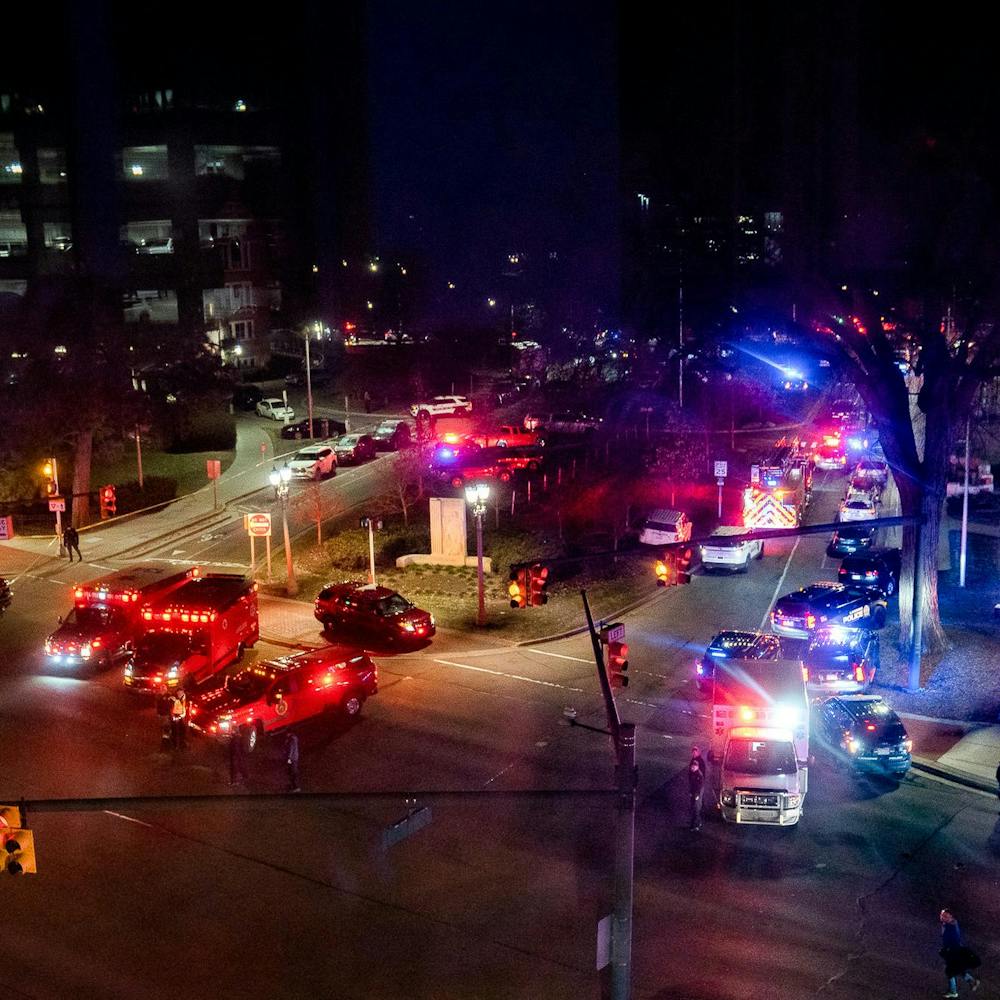When East Lansing businesses and residents think of items to protect from thieves, they may be missing one big thing — the inside of their air conditioning units. Copper wire theft, which has been an increasing national concern, is an issue in East Lansing. Between up to eight cases of copper theft have been reported in the area this year, said East Lansing police Sgt. Scott Wriggelsworth. And these thefts primarily involve the copper wiring in air conditioning units, he said.
“Really, what (the thieves) are doing is gutting the air conditioners, so it still looks like (they’re) intact, but when you go to use (them), they don’t work,” he said.
Businesses are typically the ones targeted because they have bigger units, Wriggelsworth said.
“A lot of these happen outside, (so the) evidence is really hard to gather,” he said. “Say they hit it in March, say the air conditioning doesn’t get cranked until May — there’s no way to fingerprint traceable evidence because of the conditions they sit in.”
Dew can ruin evidence overnight, he said.
Those hit have to replace the units or wires, said Dave Guz, president of H&H Metals, a scrap recycling company located at 29131 Michigan Ave. in Inkster.
The price of copper is about $4 a pound, which is up from less than $1 a pound in 2003. In December 2006, the U.S. Mint banned the melting of coins, because the metal making up pennies and nickels was worth more than the coin itself.
Nickels, which are 75 percent copper, were worth 6.99 cents at the time.
Pennies were worth 1.12 cents, but the primary metal in pennies is zinc.
The increase in the price of copper comes from the international market, said Larry Bass, co-owner of Friedland Industries Inc., a scrap metal business located at 405 E. Maple St. in Lansing. There is a rising demand for copper in China, he said.
While the copper thefts in the East Lansing area have primarily focused on air conditioning units, thieves in other places have been more creative.
Church of the Messiah, located at 4800 Woodward Ave. in Detroit, had an 8-foot crucifix stolen in early June.
“When they took the crucifix of Jesus, it was almost inhuman — it just makes you realize how sick people can be,” said Veronica Randolph, parish administrator. “They don’t realize what they’re doing, they just want some money.”
The stolen crucifix was actually made out of plaster. It was found in a field near the church a few days after it disappeared, Randolph said.
“We need to pray for people who keep doing these things, and as a church, (that’s) what we’re going to do,” she said.
While reports of copper theft have increased, several scrap metal businesses said they have not noticed an increase in the number of people attempting to sell them copper.
“A lot of people stealing it are not coming to legitimate dealers, they are coming to back-door dealers,” Guz said.
But in order to prevent buying copper and scrap metal from thieves, H&H Metals’ employees look at identification of those they are buying from, he said.
Bass said he works with policing agencies to try to identify copper thieves by being part of the Institute of Scrap Recycling Industries Inc.
“If something is stolen in the Midwest, we receive e-mails and/or faxes, and we’re able to watch for stolen material,” Bass said.
Support student media!
Please consider donating to The State News and help fund the future of journalism.
Rep. Bert Johnson, D-Detroit, introduced legislation in March that would make theft of copper wire a felony.
If passed, those convicted could spend up to two years in prison and face a $5,000 fine. Under the current legislation, copper wire theft is considered a misdemeanor if less than $1,000 is stolen.
Investing in better lighting is one way for businesses and residents to help prevent copper theft, Wriggelsworth said.
“If you have a building that has (the air conditioning unit) lit, and another one that doesn’t, it doesn’t take rocket science to figure out which they’re going to hit,” he said.
“Buy a $20 light, and protect a $20,000 air conditioning unit.”
Discussion
Share and discuss “What it all boils down to...” on social media.





